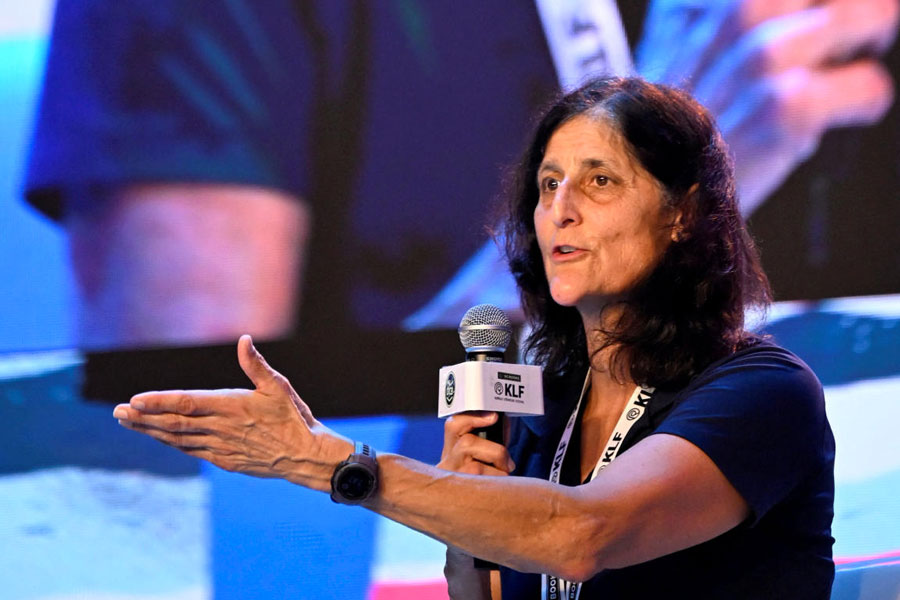 |
| Nizam Shamim. Picture by Bishwarup Dutta |
Nizam Shamim is 65, but agile as ever. The retired IPS officer wakes up at 5 am and spends an hour at the gym in his house at Acre Road in Park Circus. Then he heads for Tollygunge Club where he plays tennis. Back home, he reads three newspapers, including an Urdu daily, over a steaming cup of tea. Then begins his day’s work.
It is making rounds of Urdu medium schools in the city and Howrah. “This helps us to know what students lack and how teachers can motivate them,” he says. Shamim is the general secretary of Educational Co-ordination Committee. The organisation, his brainchild, is run by progressive members of the Muslim community, including school and college teachers and retired IPS officers, and works to spread education.
“Lack of education is mainly responsible for the plight of the community. That’s why we concentrate on the youth,” says Shamim, who served Calcutta Police for over 25 years and retired in 2002.
His organisation focuses on Urdu-medium schools recognised by West Bengal Board of Secondary Education. “The standard of education in such schools is falling. The teachers never have any refresher course to update themselves.”
Shamim’s trust, which is not an NGO and has members and patrons as sponsors, has been offering scholarships to meritorious students of the community for over five years. Last year, it offered 33 scholarships to students who did well in Madhyamik and to 10 students who scored above 75 per cent in Higher Secondary. “Muslim girls are doing exceptionally well and we are planning to offer separate scholarships to them,” he says.
The trust has set up a coaching centre for those preparing for competitive examinations. The classes are held thrice a week at Milli Girl’s Al-Amin College. Shamim teaches English and Bengali there. “To clear WBCS examination one has to know Bengali. The students are first-generation learners and need guidance,” he stresses.
Shamim’s concern for the community is backed by statistics: surveys by the trust show only one sixth of the mid-level Urdu-medium students in the city make it to the Madhyamik. “We are going to launch a door-to-door campaign to motivate the students to stay in the schools,” he says.
Shamim does not devote much time to the family, though he is thankful that he has such a supportive wife, with whom he makes it a point to have dinner. But he hasn’t given up on short stories: when he is not reading them, he is writing them.










